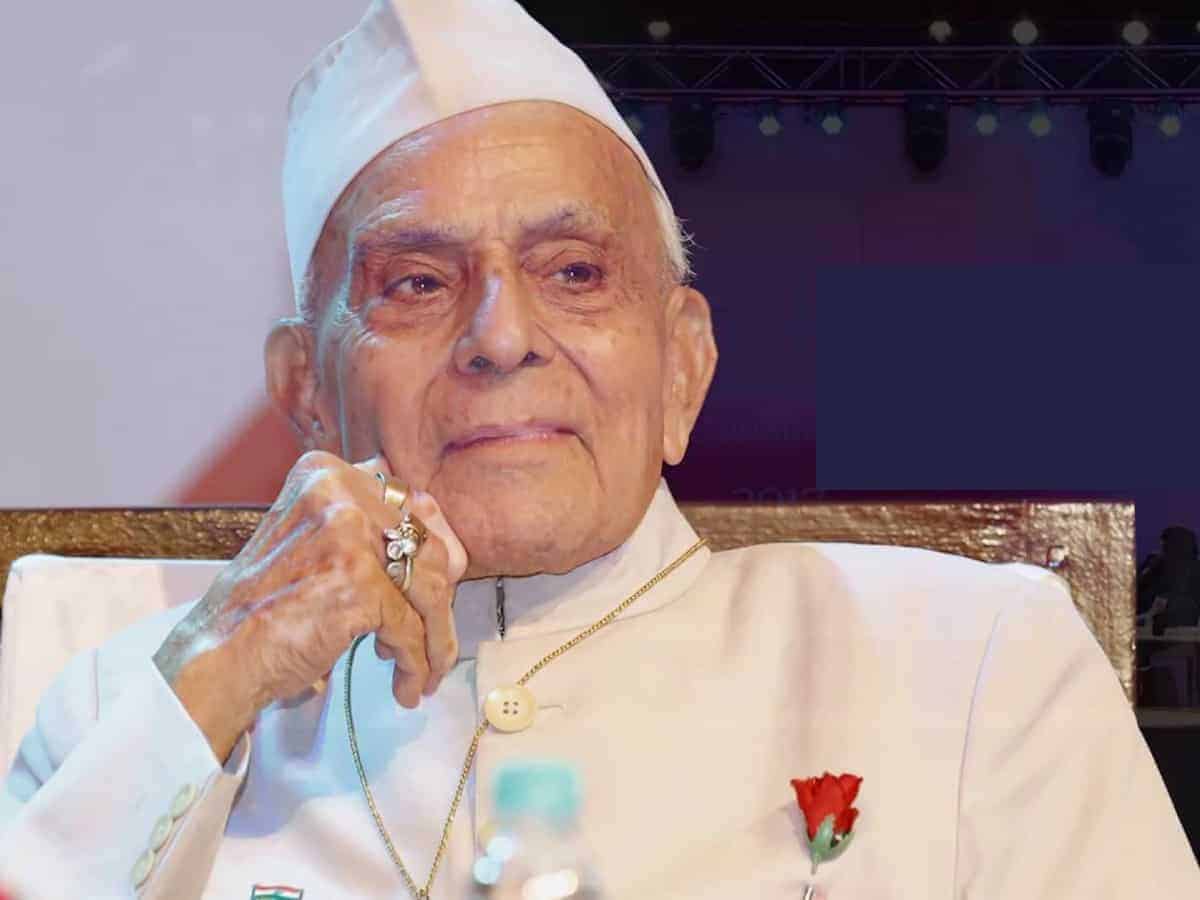Daneesh Majid
New Delhi: Perhaps the last noted poet representing Ganga-Jamuni tehzeeb of India, Pandit Anand Mohan Zutshi who was popularly known as Gulzar Dehlvi is no more. He passed away in Delhi on Friday after surviving a bout with coronavirus some five days ago.
Media persons waited to greet him as he at the ripe age of 94 years left the hospital after defeating the killing virus with his signature fortitude. Many prominent newspapers gave his feat against the virus the due it deserved with headlines.But after not letting corona get the best of him, death triumphed over Dehlvi.
Born as Pandit Anand Mohan Zutshi, Gulzar Dehlvi was a one of the last speakers of the Delhi’s chaste and literary form of Urdu. According to historian Sohail Hashmi, the city’s culture flowed through his veins as he was a quintessential Dilliwala. He was a Kashmiri Pandith who fostered brotherhood between various religious communities. People thought he was a Muslim as his habits oozed of the country’s Ganga-Jamuni tehzeeb.
Like Pandith Nehru, the lapelle of his shervani was always decorated with a rose. The shervani, was his preferred attire. Masoom Moradabadi, a well-known columnist, says that he never saw him wear anything else.
A polyglot who taught Persian and Urdu at Delhi University for several decades, his grasp over Urdu, Hindi, Sanskrit and Arabic was unmatched. To witness a confluence of Kashmir, Punjab, Delhi and UP, one had to turn towards Dehlvi. Gulzar Dehlvi wielded a powerful pen as a poet as he knew how to liven up any gathering with his repertoire and sheer presence. He was a true successor to his father Allama Pandit Tribhuvan Naat Zushi ‘Zaar Dehlvi,’ but to Nawab Saael Dehlvi, Allama Pandit Brijmohan Dattatreya Kaifi and Maulvi Abdul-Haq.
Delhi’s deteriorating Urdu bazaar was the centre for his literary activities.
In Ramzan, he used to fast, hold iftar parties for friends and relatives. He also invited fellow poets to iftars via invitation cards. Well-known poets like Jigar Moradabadi, Raghupati Sahay — better known as Firaaq Gorakhpuri, Maulvi Abdul Haq, Allama Niyaz Fatehpuri and Josh Maleehabadi were among his admirers.
His death has left a void in India’s literary landscape. Plus, the syncretic values that he symbolized and held dearly are now under attack. As he once waxed:
Jahaan insaaniyat vehshat ke haathon zabh hoti ho. Jahan tazleel hai vahaan behtatar hai mar jaana
Where humanity is slaughtered at the hands of fear Where there is degradation, it is better to die than live such a place
Dehlvi’s words could not be more apt in describing the country’s current milieu that certain powerful folks are cultivating from his city. To keep fighting for those values of communal brotherhood in such tumultuous times is to honour his legacy.
Text compiled with the help of articles written by historian Sohail Hashmi and columnist Masoom Moradabadi.

